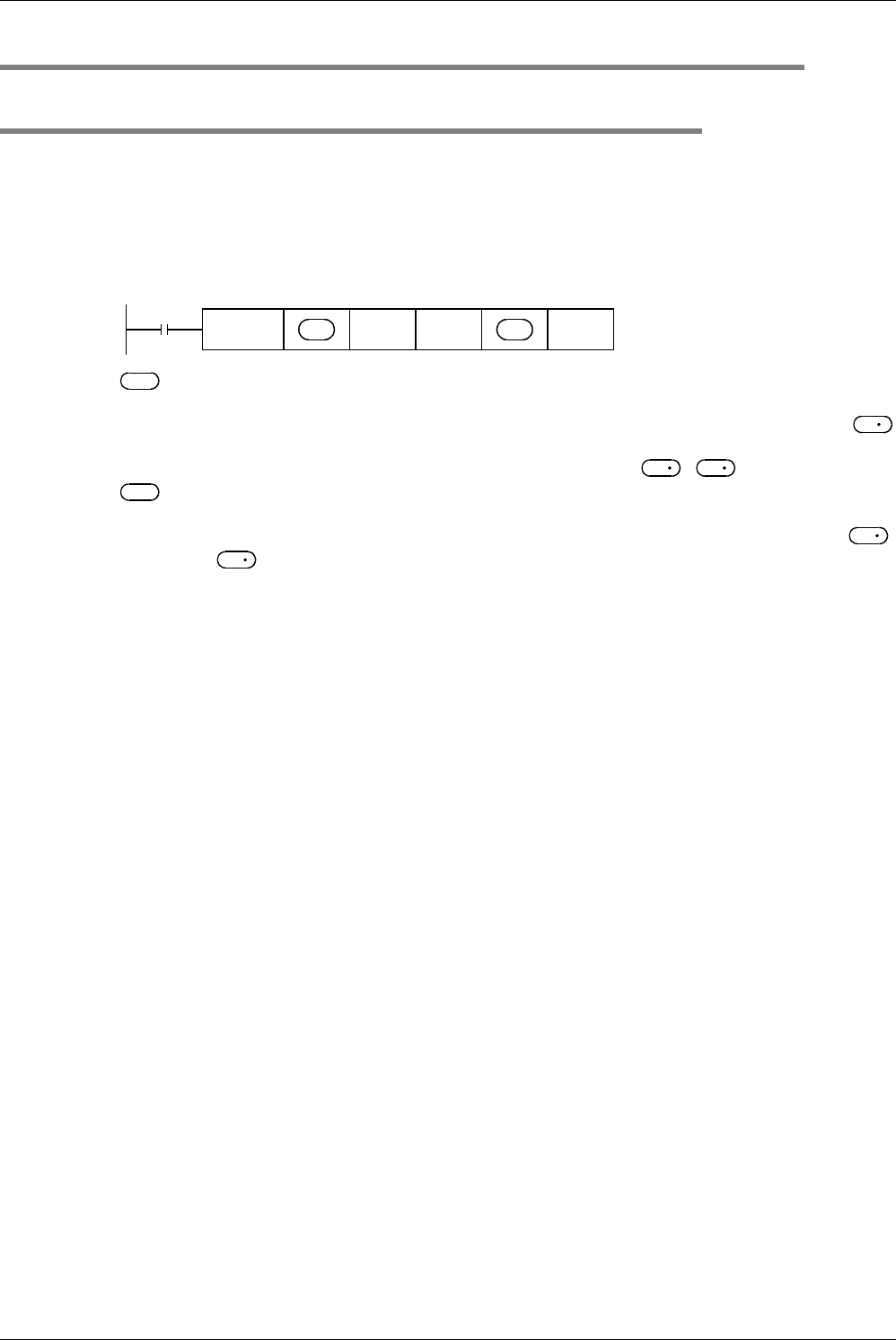
170
FX3G/FX3U/FX3UC Series Programmable Controllers
Programming Manual - Basic & Applied Instruction Edition
6 What to Understand before Programming
6.5 General Rules for Applied Instructions
6.5 General Rules for Applied Instructions
6.5.1 Expression and operation type of applied instructions
Instructions and operands
- Both a function number FNC 00 to FNC and a symbol (mnemonic) indicating the contents are given to
each applied instruction.
For example, a mnemonic "SMOV (shift move)" is assigned to FNC 13 instruction.
- Some applied instructions function only with their instruction part, but many instructions consist of the instruction
part and following operands.
: An operand whose contents do not change by execution of the instruction is called "source", and is
indicated by this symbol.
When a device number can be indexed with index registers, the source is expressed as
with addition of " ".
When there are two or more sources, they are expressed as , , etc.
: An operand whose contents change by execution of the instruction is called "destination", and
indicated by this symbol.
When indexing is allowed and there are two or more destinations, they are expressed as ,
, etc. in the same way as sources.
m, n : Operands not falling under source or destination are expressed as m and n.
When indexing is allowed and there are two or more such operands, they are expressed as m1 ,
m2 , n1 , n2 ,etc. in the same way as sources and destinations.
- In applied instructions, the program step of the instruction part always occupies 1 step, but each operand
occupies 2 or 4 steps depending on whether the instruction is 16-bit type or 32-bit type.
Devices handled as operands
- Bit devices themselves such as X, Y, M and S may be handled.
- Combined bit devices, KnX, KnY, KnM, KnS, etc, may be handled as numeric value data.
→ Refer to Section 5.4.
- Data registers D and current value registers for timers T and counters C may be handled.
- Though data registers D are the 16-bit type, two serial data registers are combined when 32-bit data is handled.
For example, when a data register D0 is specified as an operand in a 32-bit instruction, D1 and D0 are combined
to handle 32-bit data. (D1 handles high-order 16 bits, and D0 handles low-order 16 bits.)
When current value registers for T and C are used as general data registers, they are handled in the same way.
However, each of 32-bit counters C200 to C255 can handle 32-bit data, and cannot be specified as an operand
in a 16-bit instruction.
Command
input
FNC 13
SMOV
S
D
nm1 m2
S
S
S
1
S
2
D
D
1
D
2


















